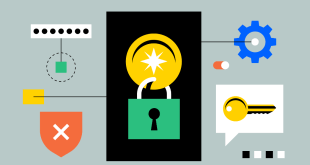In this comprehensive blog, we delve into the ever-evolving realm of SSL certificates and their significance in securing the Internet of Things (IoT). As a leading SEO-optimized content writer, we understand the importance of addressing your concerns about SSL certificates, website security, and IoT vulnerabilities.
Introduction
With the growing interconnectedness of devices, IoT has become an integral part of our lives. However, this convenience comes with inherent security risks. SSL certificates have long been the bedrock of website security, safeguarding data transmission between users and websites. In this blog, we explore how SSL certificates are evolving beyond the traditional padlock symbol and their crucial role in fortifying IoT security.
Understanding SSL Certificates
What are SSL Certificates?
SSL (Secure Socket Layer) certificates are cryptographic protocols that ensure secure communication between a web server and a user’s browser. They establish an encrypted link, safeguarding data privacy and integrity.
The Role of SSL Certificates in Website Security
SSL certificates provide several key benefits for website security, including:
Data Encryption:
SSL encrypts sensitive data, preventing unauthorized access during transmission.
Trust and Credibility:
SSL certificates display visual cues like padlock icons, assuring visitors of a secure connection.
SEO Ranking:
Search engines consider SSL encryption as a ranking factor, positively impacting search visibility.
Types of SSL Certificates
SSL certificates come in various types, catering to diverse needs:
Domain Validated (DV) SSL:
Suitable for basic encryption needs, verifying domain ownership.
Organization Validated (OV) SSL:
Provides higher credibility, validating domain ownership and organizational details.
Extended Validation (EV) SSL:
Offers the highest level of trust, involving thorough verification of the organization’s identity.
Beyond the Padlock: Evolving SSL Certificates
SSL certificates have evolved beyond the familiar padlock symbol. The new developments include:
Wildcard SSL Certificates:
Secure multiple subdomains with a single certificate, streamlining management.
Multi-Domain SSL Certificates:
Protect diverse domains and subdomains with a single certificate, ideal for businesses with multiple online assets.
Certificate Transparency (CT):
Publicly log SSL certificates to enhance transparency and security.
The Interplay of SSL Certificates and IoT Security
Challenges of Securing IoT Devices
The rapid growth of IoT has introduced new security challenges due to the proliferation of connected devices. Key challenges include:
Device Vulnerabilities:
Many IoT devices lack robust security features, making them susceptible to exploitation.
Data Privacy Concerns:
IoT devices collect and transmit vast amounts of data, raising privacy issues.
Distributed Network:
The distributed nature of IoT networks complicates security management.
Securing IoT Ecosystem with SSL Certificates
Embracing SSL certificates can significantly enhance IoT security in the following ways:
Authentication:
SSL certificates authenticate IoT devices, ensuring they connect only to authorized networks.
Data Encryption:
SSL encryption safeguards data transmitted between IoT devices and central servers.
Integrity and Non-Repudiation:
SSL ensures data integrity and prevents data tampering or falsification.
The Future of SSL Certificates and IoT Security
Post-Quantum SSL: Strengthening Security
The advent of quantum computing poses a potential threat to traditional cryptographic algorithms. Post-Quantum SSL, leveraging quantum-resistant algorithms, is emerging as a robust solution to counter this threat.
Machine Learning and SSL Certificate Management
Machine learning algorithms are revolutionizing SSL certificate management, optimizing certificate lifecycles, and identifying anomalies or potential threats.
Zero-Trust Framework for IoT Security
A Zero-Trust framework, where no device is inherently trusted, is gaining traction to bolster IoT security. SSL certificates play a crucial role in implementing this approach.
Commonly Asked Questions
Q1: Why is SSL certification crucial for IoT security?
A: SSL certification ensures encrypted communication, authentication, and data integrity, safeguarding IoT devices from potential threats.
Q2: How can SSL certificates enhance my website’s SEO ranking?
A: Search engines consider SSL encryption as a positive ranking factor, potentially improving your website’s search visibility.
Q3: What is the role of Wildcard SSL certificates in IoT security?
A: Wildcard SSL certificates can secure multiple subdomains under one certificate, simplifying IoT network management.
Q4: How can I manage SSL certificates efficiently for my IoT devices?
A: Machine learning algorithms are being used to optimize SSL certificate lifecycles, making management more efficient.
Q5: Is EV SSL worth the investment for my website?
A: EV SSL certificates offer the highest level of trust and credibility, which can positively impact customer trust and conversion rates.
Final Words
In conclusion, SSL certificates remain at the forefront of website security, transcending the traditional padlock symbol. As IoT becomes more ingrained in our lives, the interplay of SSL certificates and IoT security is vital. Embracing evolving SSL technologies, adopting a Zero-Trust framework, and preparing for post-quantum security are critical steps in securing our connected future.
 webfily
webfily



